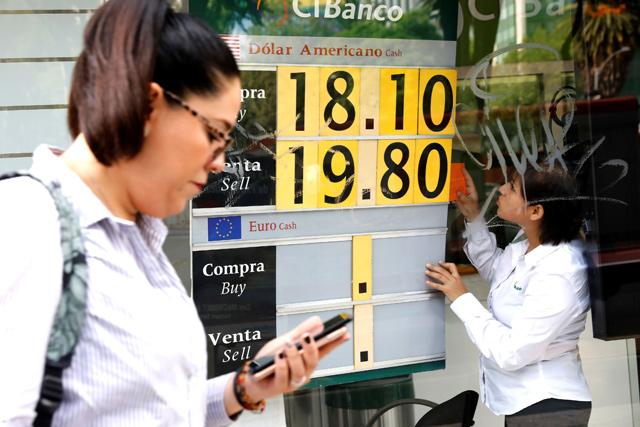You are here
Greece crisis sees Swiss franc eclipse yen as top safe haven
By Reuters - Jun 10,2015 - Last updated at Jun 10,2015
LONDON — The Swiss franc has emerged as a big winner from Greece's debt problems, overtaking the Japanese yen as investors' favourite safe haven currency despite Switzerland offering the world's lowest interest rates.
Fund managers have increased their Swiss franc holdings in recent weeks, attracted by the Alpine economy's current account surplus and by falling annual consumer prices that mean investors can still eke out a positive return even with benchmark rates at -0.75 per cent.
The franc and the yen are traditionally favoured during times of market stress or economic uncertainty. Usually the yen is the more sought-after, since it is more liquid. However, data from Swiss bank UBS shows that in the past three weeks the franc has emerged as the best-bid major currency.
"There is no doubt that between the yen and the Swiss, the yen has lost out," said Niels Christensen, FX strategist at Nordea. "In a risk-off environment, especially on worries about Greece, we are not seeing as much of a reaction from the yen as we are seeing for the Swiss franc."
The franc this week hit its highest against the yen since late-January, just days after the Swiss National Bank abruptly abandoned a 1.20 francs per euro cap on January 15, sending the currency soaring.
It also imposed negative interest rates to discourage inflows. At -0.75 per cent, they are the lowest in the world, though Denmark has since cut to the same level.
However, the negative rates have done little to deter investors, especially those seeking safety, with recent SNB data suggesting portfolio investments and repatriation by large Swiss investors back to Switzerland remain robust.
The Swiss franc's latest rise coincides with a bout of sustained weakness in the yen. Speculators, asset managers and long-term sovereign funds have been selling the yen in the past few weeks on worries that the Bank of Japan may have to resort to additional monetary easing to boost inflation.
And while the dollar has in the last three months gained 3.5 per cent against the yen, also reflecting expectations of tighter monetary policy from the Federal Reserve, it has lost more than 5 per cent against the Swiss franc.
Similarly, the euro has gained 6.5 per cent against the yen but has lost about 2.3 per cent against the franc.
More Swiss strength
Latest data from the Commodity Futures Trading Commission showed that while speculators were betting on the yen falling, they remained favourable towards the franc.
In the derivatives market, risk reversals — a gauge of demand for options on a currency rising or falling — show a sustained bias for euro weakness against the franc.
UBS currency strategist Geoffrey Yu said the recent franc buying, which was mainly driven by asset managers, reflected worries over Greece and waning optimism that global growth was picking up and curbing the risk of deflation.
David Bloom, head of currency strategy at HSBC, reckons the franc could even hit parity against the euro, from around 1.04 francs now.
"We have our doubts that euro/Swiss franc will push higher on a sustained basis should Greece secure an agreement with its creditors. In fact, the options market hints at a greater fear factor that euro/Swiss franc could fall sharply on a 'Grexit' scenario," he said.
He said that those betting against the Swiss franc will have to battle large investors from Switzerland who have been steadily repatriating funds back into the country.
"Switzerland's persistent current account surplus creates ongoing demand for the franc, especially while global growth prospects are so poor," he said.
Related Articles
NEW YORK — The dollar, yen and Swiss franc rose on Tuesday as traders piled into perceived less risky currencies after US President Donald T
NEW YORK — Investors rushed into the perceived safety of the Japanese yen on Friday, with the currency scoring its best day against the doll
ZURICH — The Swiss National Bank cut interest rates on Thursday — the first to do so among the major central banks, saying the battle agains

















